Effective Plumbing Maintenance Tips are essential for keeping large buildings functional, safe, and cost-efficient. In commercial properties, plumbing systems experience heavy usage every day, making commercial plumbing maintenance a critical responsibility for facility managers. Applying the best plumbing maintenance tips not only prevents unexpected breakdowns but also extends the life of plumbing infrastructure.
One of the most important Plumbing Maintenance Tips is scheduling regular inspections. Routine checks help identify leaks, corrosion, or pressure issues early. Consistent commercial plumbing maintenance ensures that small problems do not escalate into expensive repairs. Understanding how to maintain commercial plumbing begins with proactive inspections and timely servicing of pipes, valves, and fixtures.
-
Inspect the Entire Plumbing System regularly
Regular inspections lay the foundations of plumbing maintenance. Commercial plumbing systems are highly complex and often span multiple floors, zones, and utility areas. Inspections ought to consider pipes, drains, toilets, water heaters, and valves that are visible.
Professional plumbers may opt to use a video inspection camera to pass through the inaccessible pipes to check for hidden problems of corrosion, cracking, or root infiltration. Catching these problems early can save you a lot of money in emergency repairs and keep services uninterrupted in your building.
-
Fix all Leaks on the Spot
Even a small leak brings gallons of water to waste and slowly damages the structure. With high water usage in commercial buildings, leaks become even more destructive. Water dripping from faucets, toilets running endlessly, and ceilings sweating can be signs of underlying pipe damage. Ignored leaks increase your water bills, foster mold growth, and begin to tear down the infrastructure of the building.
Establish a protocol for occupants or staff to report any leak immediately. Equipping your building maintenance team with moisture meters and thermal imagers will help them find leaks that are otherwise concealed. Getting repairs done early reduces costs and prevents water wastage, which is also an environmental benefit.
-
Maintain Grease Traps and Floor Drains
Regular cleaning of grease traps and floor drains should be done if commercial buildings have food courts, cafeterias, or restaurants. When grease traps are not cleaned, FOGs solidify inside the pipes causing severe blockages and unpleasant odors, which disrupt kitchen operations and may lead to municipal fines if the waste interferes with the sewer system. Check out our latest blog post on Preventive Plumbing Maintenance Tips for New Homeowners
Similarly, floor drains that are not maintained can become clogged with debris, hair, or dirt, leading to flooding and bad odors, especially those in restrooms, basements, and commercial kitchens. Clean and flush these drains regularly; further, have them professionally cleaned every few months.
-
Insulate and Protect Pipes from Weather Variations
Frozen pipes can stop water supplies and cause extensive damage. Even in a warm climate, back-to-back temperature changes are a great factor in weakening pipe joints and seals with age.
Insulate the building’s pipes using foam or fiberglass sleeves to avert temperature-related damage. Give special attention to the pipes in the basement, exterior walls, or roof. This will help maintain full operational capacity during all seasons today.
-
Test Water Pressure and Qualities Regularly
High or low water pressure may be an indication of plumbing problems. High pressure may strain pipe joints and cause them to leak or burst, while low pressure may indicate the presence of sediments or a stuck-open valve. Commercial buildings require a consistent water pressure level to clean their systems, washrooms, and industrial equipment properly.
The effects that pressure changes in a distribution system can have on its integrity should not be underestimated. The water quality is another essential parameter that needs to be considered. Poor water quality can lead to the deterioration of fixtures and appliances and can even pose a threat to life and health. Arrange for periodic testing to check for contaminants, improper pH, or hardness, and also set up some sort of filtration system if need be.
-
Schedule Preventive Maintenance Inspections with Licensed Plumbers
Internal maintenance can deal with minor plumbing issues; licensed plumbers, however, have the expertise as well as the tools to locate deeper problems. They are capable of clearing clogged lines, can test backflow preventers, replace worn parts, and generally keep everything up to code according to local plumbing regulations.
Most plumbing companies for commercial applications offer annual or biannual maintenance agreements aimed at reducing downtime, preventing major breakdowns, and prolonging the life of the infrastructure. Preventive care is always way less expensive than emergency repair costs all those delays really cost the business.
Another key aspect of Plumbing Maintenance Tip sis drain and sewer line care. Blocked drains are among the most common commercial plumbing failures. Applying the best plumbing maintenance tips, such as professional drain cleaning and grease trap maintenance, supports smooth operations. Proper commercial plumbing preventive maintenance significantly reduces emergency plumbing calls and business downtime.
Water pressure regulation is also central to effective Plumbing Maintenance Tips. Excessive pressure can damage fixtures and pipelines, increasing repair costs. Reliable commercial plumbing maintenance includes installing pressure regulators and monitoring usage patterns. Learning how to maintain commercial plumbing also involves training staff to report unusual sounds or slow drainage immediately.
Importance of Maintenance of Plumbing in Commercial Buildings
Leak detection systems represent advanced Plumbing Maintenance Tips for modern facilities. These systems alert managers before major water loss occurs. When combined with commercial plumbing preventive maintenance, they help conserve water and protect property. Many experts consider this one of the best plumbing maintenance tips for large commercial buildings.
Regular maintenance of water heaters and boilers is another crucial part of Plumbing Maintenance Tips. Poorly maintained heating systems can disrupt daily operations. Scheduled commercial plumbing maintenance ensures consistent hot water supply and energy efficiency, reinforcing long-term system reliability.
Seasonal preparation is often overlooked but remains vital in Plumbing Maintenance Tips. Preparing systems for temperature changes prevents pipe bursts and insulation damage. This approach aligns with commercial plumbing preventive maintenance strategies and supports those learning how to maintain commercial plumbing effectively.
Minimizes business disturbances
Commercial operations face disruptions if an unusual plumbing situation occurs, such as a pipe bursting, a water closet clogging, or a water heater breaking down. With such disruptions, employees can be unwilling to work, visitors will be uncomfortable, and the loss of clients or customers is possible. Scheduled maintenance shows problems, which can still be fixed before they escalate. The operations not being interrupted should be the expectation for a proactive approach.
Save on Long-Term Repairs
Sustaining plumbing issues preventatively is never more expensive than being hit with emergency repair bills or water damage restoration charges. A leak or slow-draining drain, when set aside, eventually leads to structural damage. The regular checks allow for early repair, which saves money on repairs, mold removal, or further infrastructural replacements. In a way, it’s an investment to stave off a huge expense later.
Meets Health and Safety Standards
Any plumbing faults generating leaking pipes, standing water, or mold create violations, potentially resulting in fines and, worse, legal action. Routine maintenance, thus, becomes important to avoid such scenarios, ensuring that the plumbing system is compliant with local codes of health and building standards while also being safe for tenants, staff, and customers.
Increases Water Efficiency
This ultimately helps keep utility bills down and supports sustainable development, a hot topic in commercial real estate. Many companies are also pursuing accreditation under programs such as LEED, with efficient plumbing systems playing a great part in the benchmark achievements.
Bonus Tips for Better Plumbing Management
Documentation and maintenance logs strengthen Plumbing Maintenance Tips. Accurate records improve planning and compliance while optimizing commercial plumbing maintenance. Using the best plumbing maintenance tips also involves partnering with certified professionals for inspections and repairs.
In conclusion, implementing consistent Plumbing Maintenance Tips, Plumbing Maintenance Tips, and Plumbing Maintenance Tips is essential for operational efficiency. A structured commercial plumbing maintenance, commercial plumbing maintenance, and commercial plumbing maintenance plan supported by commercial plumbing preventive maintenance and guided by best plumbing maintenance tips ensures durability, safety, and cost savings. Understanding how to maintain commercial plumbing ultimately protects your business from unexpected disruptions.
Implement Plumbing Maintenance Logs
Installing a plumbing-maintenance log is hugely beneficial for tracking inspections, repairs, and replacements over a period of time. The log is a very clear and definite history of all plumbing works done, which would assist in identifying any time-based occurrences of problems or weaknesses in the system.
Train the Employees or Tenants
Your plumbing system is only as responsive as the people responsible for it. Educate the personnel, janitors, or tenants to look out for water stains, slow drainage, or odd noises. Early intervention prevents problems from becoming major and keeps the system at peak efficiency.
Retrofit Older Fixtures
Outdated fixtures and pipework have a much higher chance of breaking down and causing leakage problems. Above all, they may consume more than necessary amounts of water, leading to high utility bills. Replace these with water-efficient fixtures, like low-flow toilets or motion-sensor faucets, to improve reliability as well as reduce longer-term maintenance costs. Newer fixtureware complies with the current plumbing codes and sustainability standards.
Employ & Consider Smart Monitoring Devices
Technology has brought in smart water leak detectors, pressure sensors, and automated alarms to alert you about anything that needs attention prior to damage. Such systems monitor in real-time the plumbing activity and will send alerts in case of anomalies or if anyone suspects a leakage or unusual pressure change. Equipping your plumbing system with these intelligent tools will only accentuate your control, enhance your response time, and secure the building even more.
Conclusion
Proper plumbing maintenance is essential for the smooth functioning of any commercial building. With high occupancy rates and frequent usage, even minor issues will escalate very fast and cause costly downtime. Contact us and experience how, through the top 6 tips of regular inspections, fixing leaks, maintaining drains, insulating pipes, checking water pressure, and scheduling professional maintenance, you will ensure that the plumbing system of the building will remain alive, safe, and efficient.
In the present-day business environment, preventive plumbing care is not an option. Take the initiative to implement a maintenance routine today that safeguards your property, keeps tenants happy, and avoids unnecessary expenses.

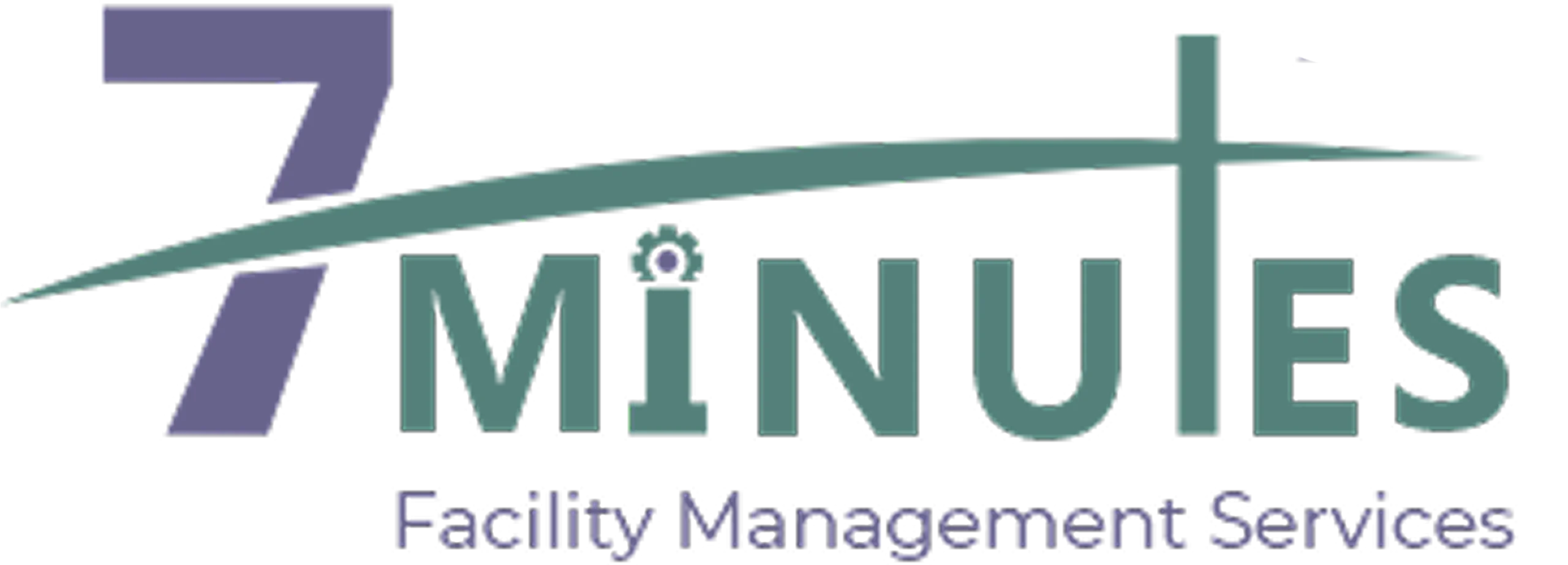
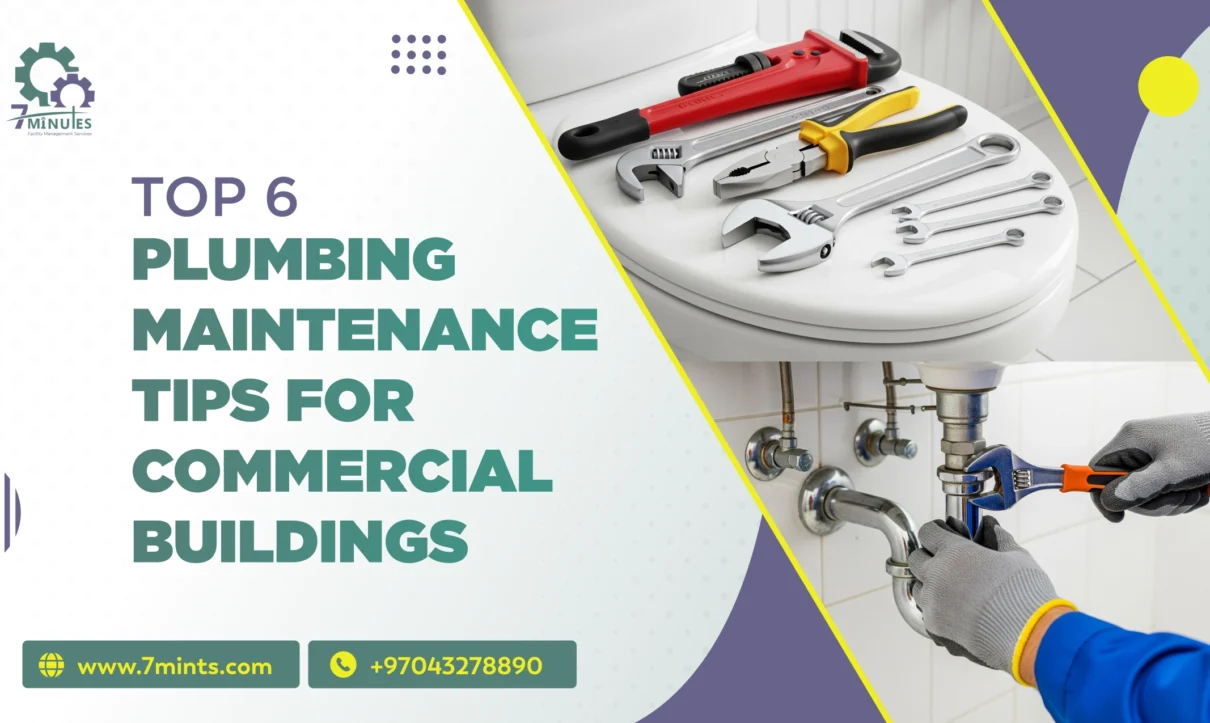

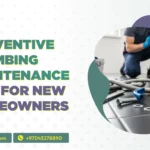
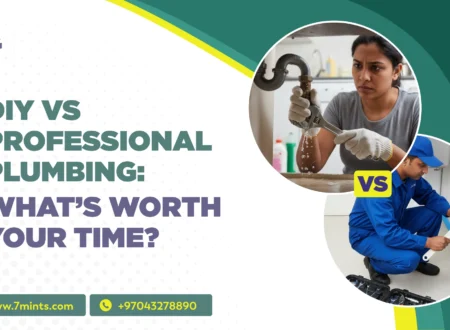
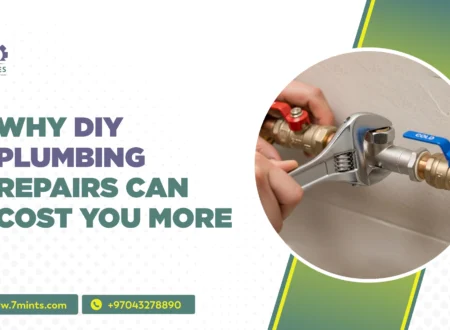
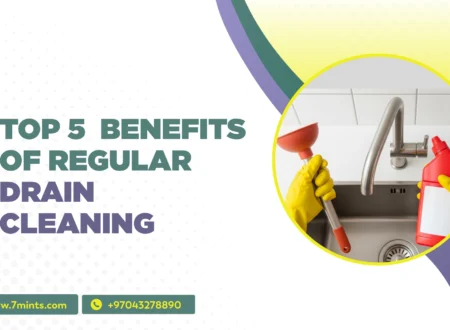
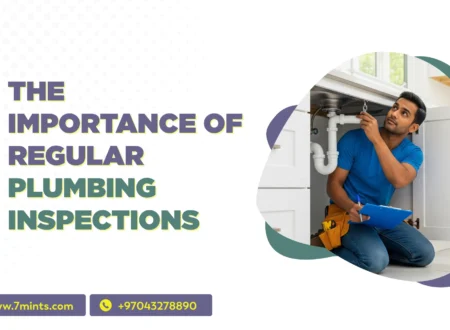

1 Comment
Comments are closed.